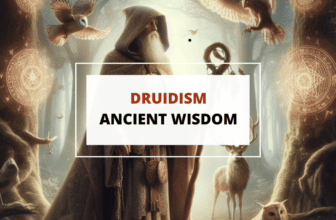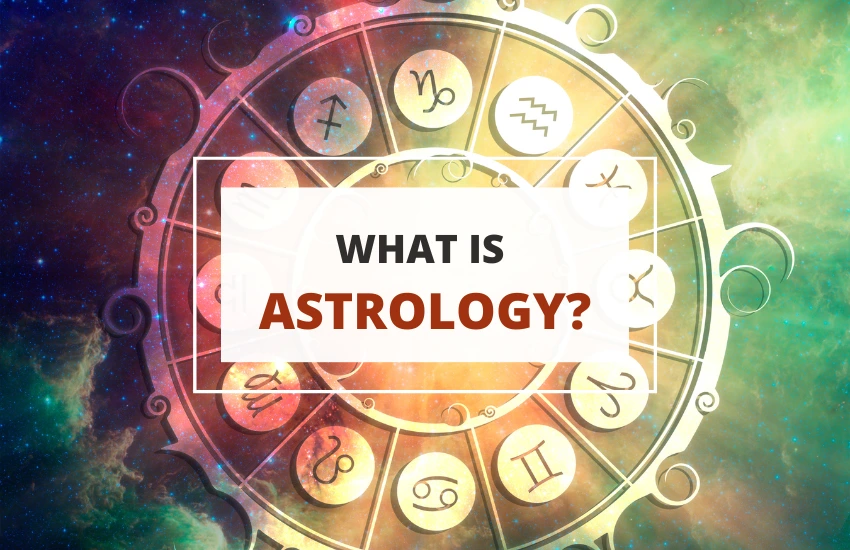
Table of Contents
Astrology is one of those topics that has been controversial for thousands of years – ever since its inception in Ancient Mesopotamia and Greece. Pretty much the only thing about astrology everyone agrees on is that it’s misunderstood.
So, what is astrology and what does it entail? Is it “a real science” or is it incompatible with (or discredited by) the scientific method? With whole books and library shelves written about it and still not quenching the controversy, we doubt our quick article will manage to satisfy everybody. With that said, let’s give astrology a quick and impartial overview.
What Is Astrology?
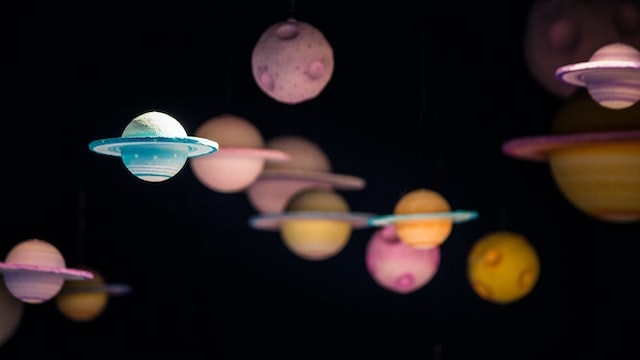
The dictionary definition of astrology is quite straightforward – so much so that it may fool you into thinking that this is a simple topic to explore. As the Oxford Dictionary describes it, astrology is “the study of the positions of the stars and the movements of the planets in the belief that they influence human affairs.”
Likewise, Merriam-Webster describes astrology as “the divination of the supposed influences of the stars and planets on human affairs and terrestrial events by their positions and aspects.”
In short, astrology proposes that the relative position of the Earth, moon, planets, stars, constellations, and other celestial bodies in the sky at the time of your birth – as well as your exact geographical position on the Earth itself and the exact time of day – all inform your destiny to a certain extent.
Other terms for this process are genethlialogy or casting of nativities. Genethlialogy is viewed as a pseudoscience in the scientific world and as a science by astrologists. It is a broader term that includes astrology within it alongside other forms of divination such as fortune reading, taro, and so on.
This also makes astrology a type of divination similar to the ancient Mesopotamian practice of omina (reading omens) which often also included a “reading” of the stars, as well as many other such spiritual practices that have emerged across the world throughout humanity’s history. In fact, many see the Mesopotamian form of star reading as the origin of astrology.
As clear-cut as this seems to be, however, even if you’ve opened a horoscope just once or twice in your life, you know there’s more to it – there are ascendants, retrogrades, a whole host of other terms, and multiple different philosophical currents inside the broader field of astrology, each with its own understanding for how this type of divination works, and how it affects people’s destinies and souls.
Let’s try to delve a bit deeper into astrology’s specifics, history, as well as its contentious relationship with science.
Different Categories Within Astrology
There are many terms about astrology everyone’s heard of, but not everyone knows the meaning of. For example, lots of people like to joke about “Someone’s ascendant” and “Is Mercury in retrograde?” but what do these things actually mean in astrology? Let’s go over the several basic terms one by one.
What Is A Zodiac Sign?

The 12 zodiac signs are at the core of astrology and its whole purpose – to give people insight into the future course of their life based on the exact location of planets and constellations at the time of their birth. In fact, that’s exactly what the 12 zodiac signs are – the 12 astrological constellations the ancient people in Greece and Mesopotamia thought were most crucial and related to people’s lives and destinies on Earth.
These 12 constellations weren’t just the stars the ancient people happened to know about, however – these were the constellations that formed a belt around the ecliptic (the apparent annual path of the sun across the sky).
This is also why you’ll often hear astrologers talking about planets being “in” a certain zodiac sign from time to time – that’s because the said planet is in the area of the sky and the ecliptic belt that corresponds to a particular constellation. So, you can encounter things such as “The Moon was in Leo when I was born” or “Mars is in Libra right now” – these are also things astrologers factor in when they make their predictions on one’s future.
As a further tidbit, the 12 zodiac signs are also divided into 4 sub-groups based on the core Earthly elements of fire, water, air, and earth. This division is solely based on certain personality traits and characteristics astrologers associate with each zodiac, however – it’s not based on anything that relates to the constellations themselves.
For example, fire signs are the ones associated with a fiery temperament, having a short fuse, being passionate, etc. whereas earth zodiac signs are the ones that are patient, pragmatic, slow to anger, “down to earth”, and so on.
The 12 constellations or zodiac signs include, in order:
- Aries (March 21 – April 19) – As the first fire sign, Aries is associated with a constant desire for victory, impulsivity, and with a courageous and fun-loving personality.
- Taurus (April 20 – May 20) – An earth sign, Taurus is said to always be pragmatic, loyal, patient, and soothing, but still capable of angering if poked often enough.
- Gemini (May 21 – June 20) – This air sign is seen as friendly, and overly enthusiastic at all times, but also clever and tricky when it wants to be.
- Cancer (June 21 – July 22) – The first water sign is believed to be sensitive and nurturing as well as loving and goofy (things we don’t usually associate with this word nowadays).
- Leo (July 23 – August 22) – The next fire sign, Leo is always hogging the spotlight and has a commanding presence but it’s also inspiring and entertaining.
- Virgo (August 23 – September 22) – Empathetic and loving, the earth sign Virgo is also always full of useful information and eager to help those around them.
- Libra (September 22 – October 23) – This air sign always seeks balance but is also lighthearted, fair, and fun when it manages to achieve it.
- Scorpio (October 23 – November 21) – Scorpio may have a bad reputation for its temperament but it’s actually a water sign associated with private, quiet, and calm, as well as wise and spiritual.
- Sagittarius (November 22 – December 21) – The last fire sign is always full of life and looking for fun. Sagittarius is also said to always look for knowledge, especially regarding other cultures and people.
- Capricorn (December 22 – January 19) – Organized and practica, this earth sign is believed to always have high goals and to always be willing to put in the work to achieve them.
- Aquarius (January 20 – February 18) – Despite its name, Aquarius is an air sign. As such, it’s independent, free-thinking, and always in motion, which is why it often tends to butt heads with authority figures.
- Pisces (February 19 – March 20) – Lastly, this water sign is seen as artistic and romantic but also very well-balanced and wise.
What Is An Ascendant?
Also called “a rising”, the ascendant is any zodiac sign that was located on Earth’s eastern horizon at the time and place of your birth. It’s called that because, from Earth’s perspective, the ecliptic belt of the zodiac sign is always in motion from east to west in the sky. So, the easternmost sign is the one that is rising or ascending.
Astrologers believe that a person’s ascendant sign also informs aspects of their personality and helps shape their destiny in particular ways. This is also why many astrologers will criticize each other for failing to factor in a person’s ascendant and thus giving false predictions.
It’s also worth noting that some astrologers also count extra celestial bodies as “ascendants”, namely the dwarf planet Ceres and certain comets and asteroids such as Vesta, Juno, Chiron, Pallas, and others.
What Is The Meaning Of Individual Celestial Bodies?
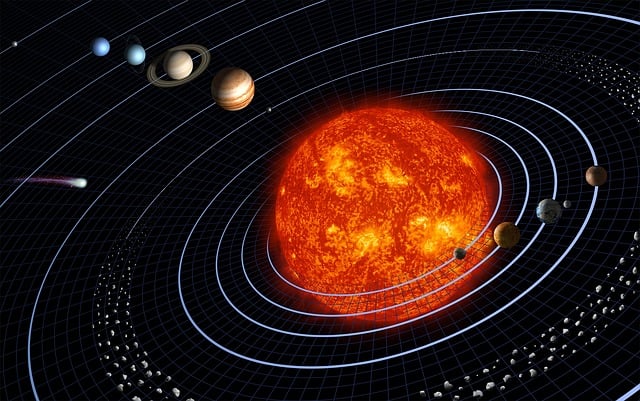
With countless trillions of stars and planets in the night sky, it’s always puzzling to skeptics that astrology continues to focus on the same few dozen of celestial bodies more so than on all others. Nevertheless, astrologers are firm that the following bodies, in addition to the 12 zodiac constellations, have a huge meaning for the personalities, souls, and fates of people on Earth:
- The Sun – When the sun happens to align with your zodiac at your birth or at another significant date, astrology postulates this means self-confidence and strength of your identity.
- The Moon – This is the emotional sign in any zodiac, meaning that if the moon appears in your zodiac sign at your date of birth, that signifies emotional intelligence, intuition, good values, and a sense of safety.
- Mars – This is the celestial-body equivalent of the Aries zodiac sign, so it’s no coincidence that both are named after the same ancient Greek god – Mars signified taking action into your own hands, being courageous, and having freedom of expression.
- Mercury – Named after the Roman god of messages, communication, research, and trade, Mercury symbolizes those same things in the people whose zodiac sign it happens to be at the time of their birth.
- Venus – As the planet named after a goddess of beauty, passion, and love, Venus symbolizes these things as well as relationships, money, and art for people born under her influence.
- Saturn – Based on the Roman god of time, discipline, responsibility, rules, and boundaries, Saturn appearing in your zodiac sign is seen to mean those exact things for your character.
- Jupiter – This planet is typically associated with luck and abundance when it coincides with your zodiac, as well as leadership, and rule.
- Uranus – A planet associated with spontaneity, rebellion, breakthrough, and change, Uranus is a planet that leads to a certain type of hot-headedness when it appears in your zodiac sign.
- Pluto – This former planet – now a dwarf planet, like Ceres – is seen to mean death as well as rebirth, transformation, and power over life itself.
- The North and South Nodes – Not celestial bodies but mathematical points in space-time, the North and South Nodes are each other’s opposites. The North Node signified progress in life, whereas the South Node means one is already ahead in certain paths of life due to certain experiences.
What Does Retrograde Mean In Astrology?
Retrograde is one of the terms mocked the most by skeptics of astrology. That’s because all this term means is that a planet’s movement across Earth’s sky appears to be going backward for a time.
The word “appears” is doing all the heavy lifting here because, of course, planets don’t just reverse their trajectories from time to time. Instead, they sometimes just look like they do from Earth’s point of view because the Earth is also moving across space. So, from a scientific point of view, a planet or another celestial body being “in retrograde” means absolutely nothing at all – it’s still moving in accordance to its orbit, as it does at any other time.
According to astrology, however, that does matter because that change of perspective changes the supposed effect the planet has on people’s fortunes on Earth. Astrologers give even more importance to the times when multiple celestial bodies – especially the ones deemed significant – are in retrograde at the same time.
Different Purposes Of Astrology
Astrology is first and foremost seen as a tool for divination – foretelling people’s fortunes by reading celestial signs. However, different astrological currents haven’t always been seen eye to eye. We’ll discuss astrological philosophy more below but, first, let’s go over the three main purposes of astrology.
1. General Astrology
This is what most people understand as astrology – the study of the position of celestial bodies in relation to Earth at particular times, as a tool to inform us about the expected destinies of individual people.
2. Catarchic Astrology
A sort of special-use type of astrology, catarchic astrology is meant to help the individual determine particular nodes of space-time that are astrologically conducive to success or predisposed to failure. This is the type of astrology that was used by kings and clergy leaders – and by corporate and societal leaders today – to attempt to determine the most astrologically favorable times to undertake certain actions.
3. Interrogatory Astrology
Another name for fortune-telling, interrogatory astrology is meant to give the individual answers to specific questions based on the positions of celestial bodies at the time of asking but also in relation to their position at the time of birth of that same person.
Different Philosophical Currents Within Astrology Through The Ages
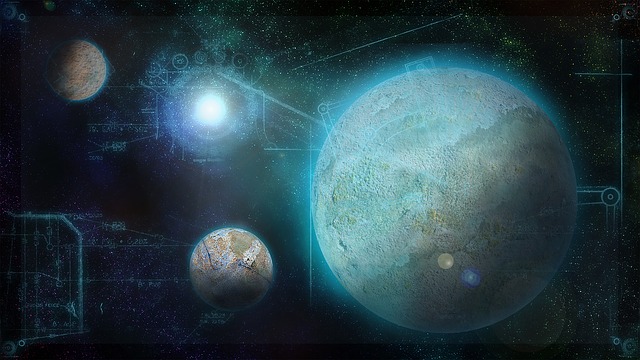
Given how old astrology is – as well as how open to interpretation it is – it should serve as no surprise that it has led to the forming of various philosophical currents over the last few millennia.
To this day, many of these philosophies are contentious topics even among fervent believers in astrology, let alone among its skeptics. In fact, it could be said that some of these philosophical currents are incompatible with each other and some are incompatible with certain mainstream-accepted goals of astrology.
1. Was The Mesopotamian Omina A Type Of Astrology?
The Mesopotamian omen-reading of celestial bodies is widely accepted as the origin of astrology.
Whether or not that makes it “a type of” astrology or not is a matter of contention but many don’t view it as such because it doesn’t include most constants of astrology such as the 12 zodiac signs of the ecliptic belt.
Still, in principle, the ancient Mesopotamian omina and astrology are the same thing – both aim to foretell people’s destinies based on the relative positions of celestial bodies.
2. Platonic Astrology
According to Aristotelian physics, there is a division between the eternal movements of celestial elements and those of the finite movements of the earthly elements of fire, water, air, and earth. Platonic physics, however, assumes a certain relation between the two.
They would cite certain observable phenomena such as the connection between the moon and the tides as proof of that and, as such, Platonic astrology accepts the possibility of celestial intervention into the earthly realm. This is why Platonic astrology is seen as the start of ancient astrology by most people today.
3. Bardesanic Astrology
With the emergence of Christianity in Europe and, later, of Islam in the Arabic world, astrological theory started to be challenged more vigorously. This wasn’t done on a scientific basis, of course, but on a theological one – none of the Abrahamic religions had an easy time accepting the main axiom of astrology that a man could change his god-given destiny by reading celestial signs, nor that celestial bodies could deny a man’s free will.
Nevertheless, some followers of the Abrahamic religions managed to find a common ground with astrology. The first such major example would be the Syrian Christian scholar Bardeisan or Bardesanes who lived between 154 and 222 AD.
According to him, the movement of the celestial bodies only predicts the happenings of the elemental world and not those of the human soul. In this way, Bardeisan accepted that astrology could have predicted powers but maintained the belief in man’s god-given free will.
4. Harranian Astrology
Another view comes from Harranian philosophers from the ancient Mesopotamian city of Harran and is also echoed by Hindu astrologers. According to their view, the celestial bodies are deities in and of themselves, and mortal men can help alter their divine decrees through prayer, liturgy, and supplication.
5. Priscillianistic Astrology
Then there are the views of Christian Priscillanists – the followers of the Spanic 4th-century ascetic bishop Priscillian who believed that the stars hold the will of God and this allows astrologers to get glimpses of His divine will without looking into Him or compromising His omnipotence.
Is Astrology Compatible With Science?

By virtually every empirical and scientific measure, astrology is not compatible with modern science. There simply is no observable connection between the position of celestial bodies at the time of one’s birth (and the location of their birth) and that person’s character or destiny.
Whatever “predictions” astrology seems able to make from time to time can be affixed with a much higher probability either to mere chance or to the self-predicting qualities of the astrology – i.e., the fact that most predictions made by astrologers and horoscopes are so general and basic that they will always feel like they’ve come true as long as you believe in them.
The counter-argument to that from the astrologer’s side is that modern science simply doesn’t understand astrology well enough yet. And, from a hypothetical point of view, this is as possible as it is unfalsifiable – meaning that, even if wrong, it can’t be disproven. Essentially, this is the astrological equivalent of the religious argument that “God works in mysterious ways”.
Another argument would be that astrology is 100% compatible with the scientific method – i.e., it can be subjected to repeated testing, experimentation, and the forming of hypotheses and predictions. The fact that said testing seems to prove astrology incorrect by most scientific measures doesn’t deter astrologers as they believe that it eventually will, once science catches up.
Wrapping Up
As you can see, there is definitely more to astrology than just horoscopes. At the same time, it can also be said that, objectively, there isn’t much of a scientific basis for astrology, at least not based on our current understanding of the physical world.
That, of course, can change in the future – the very least astrology’s skeptics can admit is that it can be examined through the scientific method – it can be subjected to systematic observation, measurement, and experimentation, as well as the formulation, testing, and modification of hypotheses.
In that sense, astrology is not only still around after thousands of years of testing and changing hypotheses, but very well can keep evolving and sticking around for thousands of years more.







